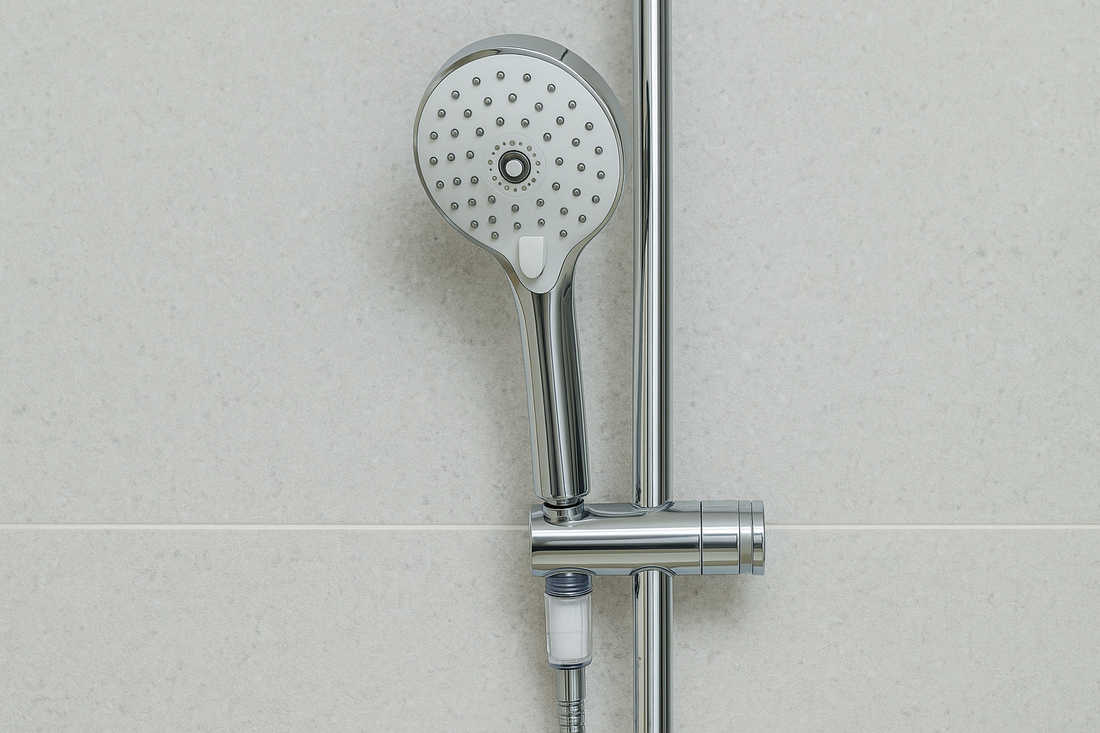
Shower Filters: Do They Really Make a Difference?
I. Introduction
Water quality directly impacts our health and comfort, yet many people overlook what comes out of their shower. Shower filters are designed to remove impurities from household water, promising softer skin, healthier hair, and reduced exposure to harsh chemicals. But do shower filters work as well as they claim? Let’s explore the science, benefits, and buying considerations.
II. Understanding Water Contamination
Tap water may contain chlorine, heavy metals, sediments, and even traces of pesticides. While generally safe for consumption, these impurities can have negative effects when absorbed through the skin or inhaled as vapor. Over time, unfiltered water may contribute to dryness, irritation, and dullness in skin and hair.
III. How Shower Filters Work
Shower filters use a range of technologies:
• Carbon filtration removes chlorine, volatile organic compounds (VOCs), and odors.
• KDF (Kinetic Degradation Fluxion) reduces heavy metals like lead and mercury.
• Ceramic or multi-stage filters target sediments and bacteria.
👉 Explore our Shower Filters for a range of technologies suited to different needs.
👉 For ongoing use, check our Shower Filter Replacements to maintain peak performance.

IV. Benefits of Using Shower Filters
Consumers often report noticeable improvements:
• Skin health – Filters reduce chlorine, minimizing dryness and irritation.
• Hair quality – Softer, shinier hair results from fewer harsh chemicals.
• Chemical reduction – Chlorine, VOCs, and heavy metals are significantly decreased.
• Allergy relief – Sensitive individuals may experience reduced symptoms.
This aligns with growing interest in the benefits of shower filters as part of wellness-oriented living.
V. Choosing the Right Shower Filter
When shopping for a filter:
• Consider water hardness—the Best Shower Filters for Hard Water collections can address mineral buildup.
• Balance price vs. performance, as higher-end models often feature multi-stage systems.
• Check installation requirements; most modern filters are tool-free and easy to set up.

VI. Scientific Evidence and Research
Studies confirm that shower filters effectively reduce chlorine and heavy metals. Dermatologists note improvements in skin hydration and barrier protection when filters are used consistently. However, research is still limited in scope, meaning individual results may vary.
VII. Cost-Benefit Analysis
While the initial investment is higher than using unfiltered water, shower filters can lead to:
• Fewer skin and hair treatments needed.
• Reduced irritation and health concerns.
• Long-term savings on personal care products.
VIII. Conclusion
Shower filters do make a difference, particularly for those with sensitive skin, allergies, or hard water at home. Though not a cure-all, they can significantly improve comfort and wellness. Investing in the right filter means cleaner water, healthier skin, and peace of mind.
